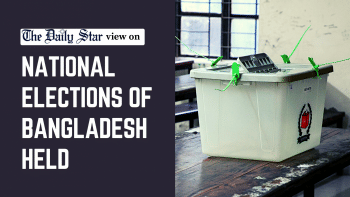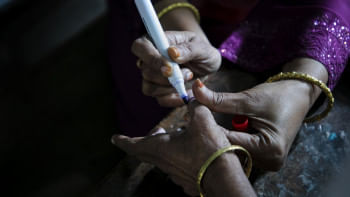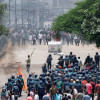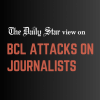Are we listening to the young voices?

Historically, at moments of national crises, our youth has been our saviours, leading movements and fighting for our fundamental rights. So when we see young citizens getting disengaged from the country's political process, it does make us worry about the future awaiting us. As predictable as its outcome was, the reluctance and confusion among young voters regarding the just-concluded 12th parliamentary election reveals a grim picture that needs urgent attention.
According to a report by this daily, there was a notable lack of interest among young voters in exercising their franchise on January 7. For those who became first-time voters in the 2014 election, which was boycotted by the main opposition, and the 2018 election, which was marred by massive voting irregularities, the 2024 election was more of the same, what with the absence of the main opposition (again) and with "dummy" candidates being fielded to create a semblance of competitiveness. "What does it matter if I vote or not?"—this seemed to be the common theme of argument among many of these voters.
This disengagement has been happening for a long time, however. Repressive laws and practices by the government have constricted the space for expressing opinions freely, so much so that, according to a recent survey, around 72 percent of the country's youth feel unsafe to freely voice their opinions on social media platforms like Facebook. There is no space for our youth to participate in healthy political debates and activities, especially in public universities where student politics has been replaced by party politics, allowing the ruling party's student front to virtually control everything. Other parties too contributed to this situation in their own way, leaving general students without any space for intellectual and political engagement safely.
This being the situation, is it really surprising that young voters have mostly lost faith in our political, electoral and governance systems? "The youth is the hope of our future"—this saying is frequently used in Bangladesh, but seldom do we see initiatives to ensure their proper development to fulfil that potential. Now that the election is over, it is time for some serious introspection for those in seats of power. Our young voters have sent a resounding message to the political authorities, and the latter will do well to pay heed.
If they truly want to achieve the growth they have promised us, they must earn back the faith of the young population. And the first step towards doing that is ensuring a healthy political environment for young people. The authorities must get rid of dirty political practices and make sure that people can freely exchange views and opinions, without fear of harassment or persecution. All political entities in the country must also play their part in restoring hope among disaffected young citizens so that the next parliamentary election sees higher, more enthusiastic and more organic participation of young voters.


 For all latest news, follow The Daily Star's Google News channel.
For all latest news, follow The Daily Star's Google News channel. 











Comments